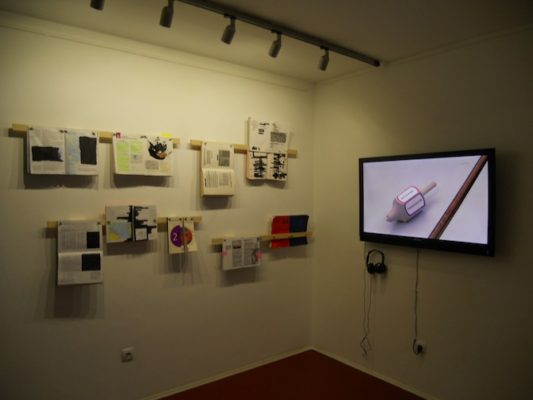Search
To search for an exact match, type the word or phrase you want in quotation marks.
A*DESK has been offering since 2002 contents about criticism and contemporary art. A*DESK has become consolidated thanks to all those who have believed in the project, all those who have followed us, debating, participating and collaborating. Many people have collaborated with A*DESK, and continue to do so. Their efforts, knowledge and belief in the project are what make it grow internationally. At A*DESK we have also generated work for over one hundred professionals in culture, from small collaborations with reviews and classes, to more prolonged and intense collaborations.
At A*DESK we believe in the need for free and universal access to culture and knowledge. We want to carry on being independent, remaining open to more ideas and opinions. If you believe in A*DESK, we need your backing to be able to continue. You can now participate in the project by supporting it. You can choose how much you want to contribute to the project.
You can decide how much you want to bring to the project.

Breaking down the underlying historical discourses and colonial paradigms within hegemonic Spanish narratives is the aim of the collective Magnetic Declination in the exhibition “Margin of Error”, at the Tasneem Gallery (Barcelona), their first public intervention after their formation that emerged from the research group DKA (Decolonizing Knowledge and Aesthetics), part of a joint operation between Matadero and Goldsmiths College, launched in Madrid in October 2012.
The point of departure for the exhibition is the affirmation that there are canons so deeply rooted in the postcolonial mentality that we aren’t even aware of their existence. In one of the videos in the exhibition, having enumerated the evils of the conquest and colonization of America, the participants are asked to argument the benefits and contributions that they brought. We are therefore witnesses to how the mind more easily locates these “benefits” as feasible information that we are able to remember because of the education we’ve received. As even though this information seems to be more than revised, Spain today is the only country in Europe that doesn’t have any Masters or Postgraduate studies dedicated to post-colonialism.
Seeing the works in the exhibition the words of Judith Butler come to mind, when she talked of discriminating or distinguishing which crimes appeared punishable to us, or which lives were worth crying over. Just as this racism embedded in our levels of perception tends to produce iconic versions of populations eminently worthy of mourning and others whose loss isn’t understood as such and who aren’t worthy of being lamented.
We also realise that it is still easier to talk of the evils of the conquest as a general process than single out names and facts, unless these names are so distant and “picturesque”, like those of Christopher Columbus, the Catholic monarchs or the Pinzón brothers. The terrain becomes more thorny when one talks of statues that raise affectionate fingers in each corner of the Catalan geography, patricians of the city, “charitable souls” that established pious schools, promoted the development of cities and towns…at the cost of the slave trade.
In the work titled CC13 the artists Daniela Ortiz and Xose Quiroga ask participants directly about the Diada in Catalonia, whether they would be in favour of knocking down the statue of Columbus, or mention the direct involvement of citizens like Antonio López i López, (a recognised slave trader with a statue that is currently standing in the Llotja del Comercio in Barcelona) in the founding of banks like Hispanocolonial. I believe that this is one of the points that should be stressed more, in exhibitions like the one in Tasneem or in works like those by Daniela and Xose: we’re not talking about isolated evils, so much as figures who didn’t just dedicate themselves to the trading of people, so much as agreed upon and maintained the power of the Spanish monarchy, establishing the bases for the political and economic power currently established in Catalonia, against which millions of people protest.
Memory, the repetitive act is the protagonist of the exhibition “Margin of Error” and it’s what betrays us. The indolence, the action of mechanically repeating the cruelties of the conquest, the indifference of citizens regarding statues and monuments of the city, the “pride” that demonstrates a lack of awareness about a colonial past where cruelties and physical and cultural annihilation “were inevitable, as in any process of conquest in which the dominance of the most developed people is validated” are a series of paradigms to be dismantled through the works; from the physical dismantling of textbooks to the investigation and development of “academic” exercises.

Mabel is convinced that everything is constructed in accord with norms that regulate the way we do things: identity, patterns of social behaviour, public membership, or the paradigms that govern artistic and curatorial practices. She thinks that developing a profoundly critical sense about everything we do leads us to question up to what point we are prepared to question these patterns and rules, even if it is only to enter into other schemata.
"A desk is a dangerous place from which to watch the world" (John Le Carré)